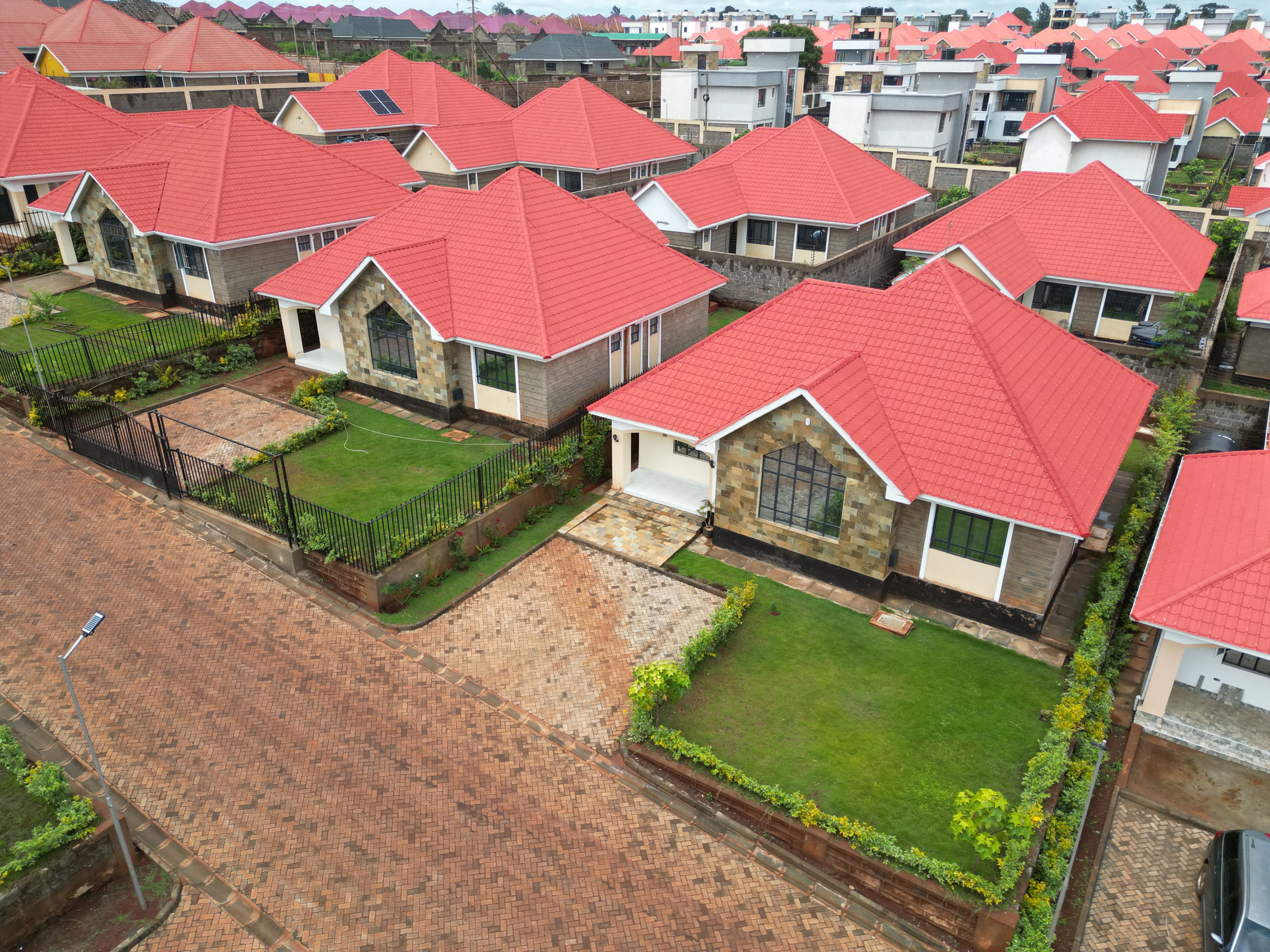In recent years, a growing number of Kenyans are opting to buy or build homes outside Nairobi instead of settling in the capital city. This shift is driven by factors such as affordability, better living conditions, availability of land, and infrastructural improvements in suburban and satellite towns. As more people prioritize quality of life, cost savings, and space, the demand for properties outside Nairobi has surged.
1. High Cost of Living in Nairobi
Nairobi remains the most expensive city to live in Kenya. The cost of land, rent, and daily expenses continue to rise, making homeownership within the city an unattainable dream for many. According to a 2024 report by HassConsult, the price per acre of land in Nairobi’s prime areas has increased significantly over the last decade.
Read Also: Growth of Real Estate in Nairobi Since Independence
| Location | Average Price Per Acre (KES) |
|---|---|
| Kilimani | 400 million |
| Westlands | 350 million |
| Lavington | 250 million |
| Runda | 120 million |
Compared to satellite towns such as Kitengela, Juja, and Ngong, where land prices are much lower, homebuyers find it more affordable to build or buy houses outside the city.
2. Affordable Housing Outside Nairobi
Housing developments in towns surrounding Nairobi offer more budget-friendly options compared to those within the city. Developers are now constructing modern gated communities, standalone homes, and apartments in these regions at lower costs.
| Location | Average House Price (KES) |
| Nairobi (City Center) | 15-50 million |
| Kitengela | 5-12 million |
| Juja | 4-10 million |
| Ngong | 5-15 million |
| Thika | 6-18 million |
These price differences explain why many homebuyers choose to move to the outskirts, where they can own a home at a fraction of the cost in Nairobi.
Read Also: Best Homes for Sale in Nairobi
3. Improved Infrastructure and Transport
Several government projects have improved infrastructure, making commuting easier for people who work in Nairobi but live in satellite towns. Key developments include:
- Expressways and Bypasses: The Nairobi Expressway, Eastern and Northern Bypass expansions have reduced travel time significantly.
- Upgraded Railway System: The Nairobi Commuter Rail has made daily commuting more convenient.
- Tarmacking of Key Roads: Roads connecting towns such as Ngong, Rongai, and Thika to Nairobi have been expanded, making them attractive residential options.
With these improvements, homebuyers no longer feel the need to live in Nairobi to access work or essential services.
4. Demand for More Space and Better Living Conditions
Life in Nairobi comes with challenges such as pollution, congestion, and insecurity. Many Kenyans seek a quieter, more spacious, and healthier environment, which is more attainable outside the city.
Reasons for preferring homes outside Nairobi:
- Bigger compounds and gardens
- Less noise and pollution
- Lower crime rates
- Access to fresh air and green spaces
Developments in areas like Ruiru, Limuru, and Kangundo offer homes with bigger plots, allowing residents to have gardens, playgrounds, and even space for farming.
Read Also: Modern Homes for Sale in Nairobi
5. Growth of Satellite Towns and Economic Hubs
The rise of economic hubs outside Nairobi has created job opportunities, reducing the need to live in the capital. Several towns have become self-sustaining, offering essential services such as banks, hospitals, shopping malls, and schools.
| Town | Major Developments |
| Athi River | Industrial parks, EPZ factories, and housing projects |
| Thika | Growing manufacturing sector, universities, and malls |
| Syokimau | Modern residential estates, SGR connectivity |
| Ruiru | IT hubs, commercial centers, and expanding road networks |
With such growth, more Kenyans find it practical to settle and work in these towns rather than endure the daily hustle of Nairobi.
6. Shift in Real Estate Investment Trends
Investors have also recognized the potential of properties outside Nairobi, leading to increased real estate projects. Gated communities, rental apartments, and mixed-use developments are being built in satellite towns, catering to the rising demand for housing.
Popular real estate investment locations outside Nairobi:
- Juja and Ruiru – High demand for student accommodation due to proximity to universities.
- Kitengela and Athi River – Affordable land and growing middle-class population.
- Thika and Kangundo – Growing industries and improved transport networks.
This shift means Nairobi is no longer the only real estate hotspot in Kenya.
7. Work-from-Home and Remote Job Trends
The rise of remote work and flexible job opportunities has also contributed to more people leaving Nairobi. With many companies adopting hybrid work models, employees are no longer required to live close to offices.
According to a 2023 report by the Kenya National Bureau of Statistics (KNBS):
- 35% of professionals in Nairobi now work remotely at least 3 days a week.
- 25% of job seekers prefer work-from-home opportunities.
With this shift, many Nairobi residents have moved to affordable towns where they can work comfortably from home while enjoying a lower cost of living.
The trend of Kenyans preferring homes outside Nairobi is expected to continue, driven by factors such as affordability, better living standards, improved infrastructure, and economic growth in satellite towns. With more real estate projects and government initiatives supporting suburban living, Nairobi may no longer be the automatic choice for homebuyers in Kenya.
For those looking to buy or invest in real estate, now is the perfect time to explore opportunities outside the capital city.





